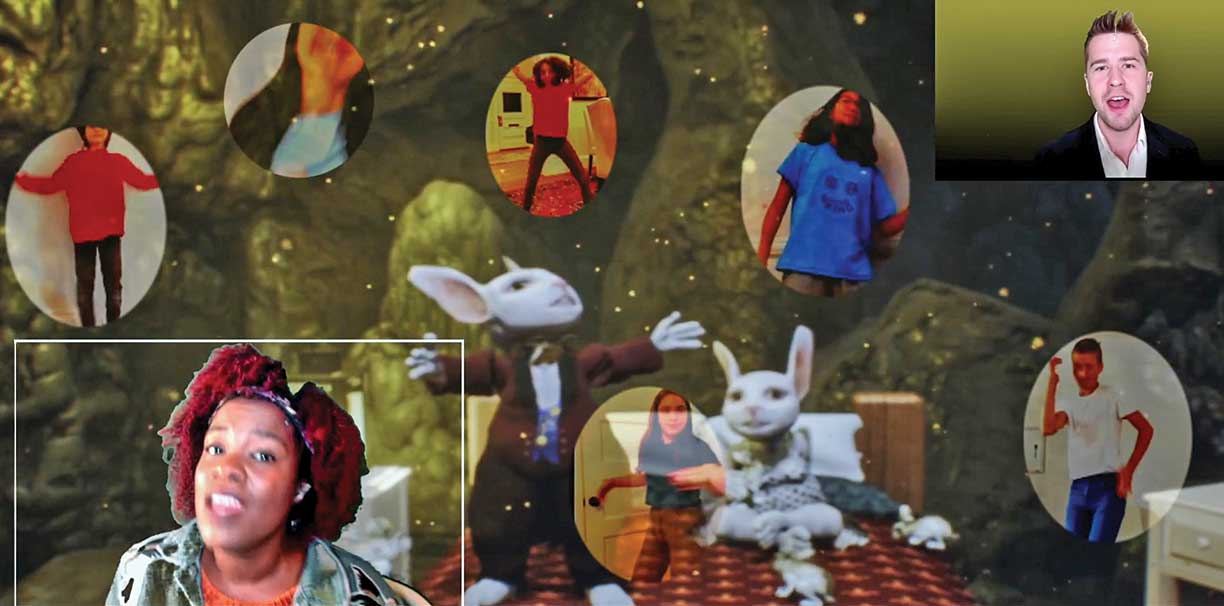Elena Araoz Leads Research on Socially Distant Theater
Five online works in the project stretch the limits of imagination and tech for online performances
In March 2020, lecturer in theater Elena Araoz was in the midst of holding auditions for a play she was set to direct at a Massachusetts theater when the pandemic hit. “There was a great sense of mourning,” she says of the theater world, which came to a complete halt. “But I also thought, ‘What better way to invigorate the way we make theater than to use this period as a place of experimentation? How do we capitalize on what this gives us and let go of the trappings we hold so dear?’ ”

Alice in the Pandemic, a deep dive into the elasticity of time, is an opera about a nurse navigating an unfamiliar landscape. A collaboration with the activist opera company White Snake Projects, it was the first online piece to use new technology that enables performers in different locations to sing together synchronously over the internet. The singers interact on the screen through fantastical 3D animated avatars, with a children’s chorus and a string quartet. “We had video-game designers and animators working with opera makers — it was thrilling,” Araoz says. “We are drawing new audiences and stirring up so many possibilities.”
In August, Araoz directed a virtual production of a farm for meme, a play written by Virginia Grise about a 14-acre farm in South Central Los Angeles that was bulldozed and paved over in 2006. The project featured professional actress Marlene Beltran and three Princeton students, who used only objects they had at home to create plants that would appear to grow. The homemade-style design dovetails with the play’s subject: A new farm has been planted by Mexican, Chicano, and other community members in recent years to help those without easy access to a grocery store.
The New York Times called the play “a 20-minute meditation on growth, death, and rebirth [that] mixes box puppets, shadow play, live film, and archival footage into a gorgeous mise-en-scène that feels theatrical in its purposefully homemade aesthetic. Arms are made of red construction paper; flower stems, of measuring tapes.”
Araoz, who will become the producing artistic director of the theater and music theater season in September, says the Princeton students working on the projects have contributed “an openness and a playfulness, reminding me that theater doesn’t have to be done in any particular way.”
Another project, The Manic Monologues, aims to dispel the stigmas around mental illness. Viewers take a self-guided tour through 21 videos in which actors perform true stories written by people who have been affected by mental illness. The stories — which run under 10 minutes each — address issues such as self-medication and suicide ideation. The project is a collaboration with the McCarter Theatre Center, The 24 Hour Plays, and Princeton University Health Services.
Virtual projects are broadening theater’s reach, says Araoz. “Theaters have often felt like exclusive places, both for artists and audiences. There were people who weren’t willing to go into theater spaces, because they haven’t felt invited in or travel isn’t possible for them. And theater makers have been trying to figure out, ‘How do we bring in young people, people from different heritages?’ In this playful virtual place, we are really invested in opening our doors wider.”












No responses yet